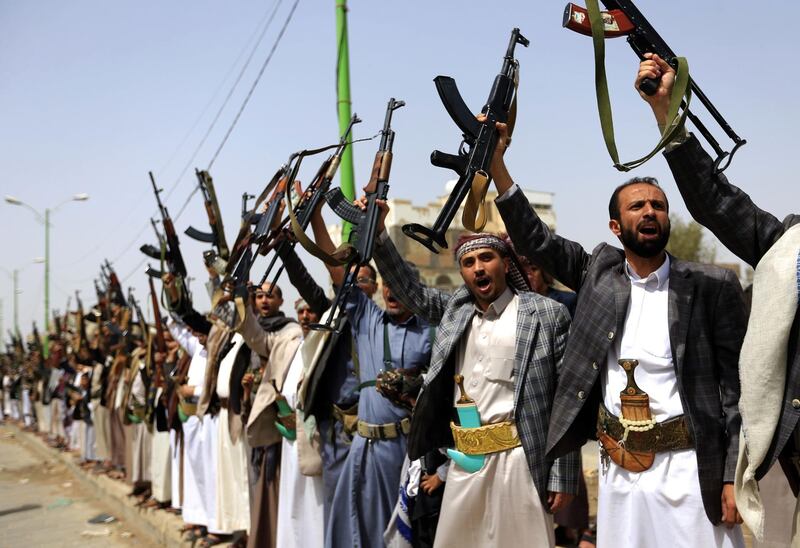A new United Nations report has confirmed what many in the Arab world have long known – that branches of regional instability trace their roots back to Tehran. How else can one explain the capacity of a ragtag militia to drive Yemen's legitimate government out of Sanaa? It is no secret that the Houthis, together with Hezbollah in Lebanon and fringe militant elements in Syria, are proxies of Iran. Now the UN panel of experts has confirmed those weapon supply lines between Tehran and the Houthis stretch back years.
The UN report validates the need for the Saudi-led coalition's efforts to restore Yemen's rightful government and comes in the wake of America's ambassador to the UN, Nikki Haley, supplying evidence in December last year that a Houthi missile fired at Riyadh international airport was Iranian-made – one of dozens of rockets launched at Saudi Arabia in recent years. Since the Houthis took control in 2014 and imposed their tyrannical rule, they have ushered in the world's worst humanitarian crisis, where civilians are used as human shields and peace is illusory. Today the country is dotted with landmines, tens of thousands of which have been destroyed by Saudi-led coalition forces. The Houthi grip on the vital port city of Hodeidah has hindered the supply of critical food and aid. The coalition has exercised great restraint in upholding a month-long ceasefire to aid negotiations. But as Khaled Al Yemany, Yemen's foreign minister, said, the rebels have chosen instead to stall for time. A window for a peaceful solution is rapidly closing.
Behind their malevolence is the scourge of Iranian expansionism. Shipments of smuggled Iranian weapons, from ballistic missiles to drones, have lengthened a grim war and deepened the crisis befalling ordinary Yemenis. Contrast that with Yemeni President Abdrabu Mansur Hadi, who today arrived in Al Mahrah with the Saudi ambassador to inaugurate development projects. It is clear the war will not end until Tehran’s economic and military supply lines to the Houthis are severed. This was part of the reasoning that prompted US President Donald Trump to tear up the flawed Iran nuclear deal and his Secretary of State Mike Pompeo to take the regime to task. The sanctions relief afforded by the nuclear deal freed up millions of dollars for Iran’s regional adventurism while Iranian citizens – starved of resources and utilities – have been taking to the streets for months to protest the regime's failure to provide for them. Sanctions should change the regime's behaviour despite the pain for its people.





